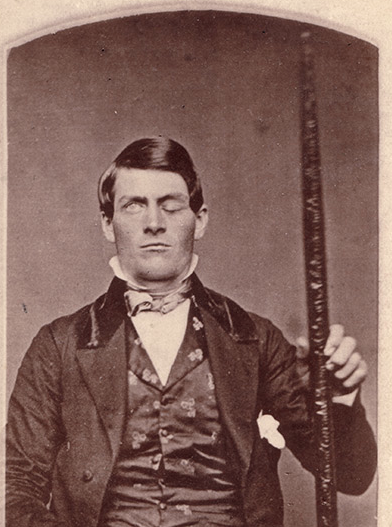Phineas Gage, Neuroscience’s Most Famous Patient

Related Link: What Historians Can Learn from the Social Sciences and Sciences
On Sept. 13, 1848, at around 4:30 p.m., the time of day when the mind might start wandering, a railroad foreman named Phineas Gage filled a drill hole with gunpowder and turned his head to check on his men. It was the last normal moment of his life.
Other victims in the annals of medicine are almost always referred to by initials or pseudonyms. Not Gage: His is the most famous name in neuroscience. How ironic, then, that we know so little else about the man—and that much of what we think we know, especially about his life unraveling after his accident, is probably bunk....
Most of us first encountered Gage in a neuroscience or psychology course, and the lesson of his story was both straightforward and stark: The frontal lobes house our highest faculties; they’re the essence of our humanity, the physical incarnation of our highest cognitive powers. So when Gage’s frontal lobes got pulped, he transformed from a clean-cut, virtuous foreman into a dirty, scary, sociopathic drifter. Simple as that. This story has had a huge influence on the scientific and popular understanding of the brain. Most uncomfortably, it implies that whenever people suffer grave damage to the frontal lobes—as soldiers might, or victims of strokes or Alzheimer’s disease—something essentially human can vanish.
Recent historical work, however, suggests that much of the canonical Gage story is hogwash, a mélange of scientific prejudice, artistic license, and outright fabrication. In truth each generation seems to remake Gage in its own image, and we know very few hard facts about his post-accident life and behavior. Some scientists now even argue that, far from turning toward the dark side, Gage recovered after his accident and resumed something like a normal life—a possibility that, if true, could transform our understanding of the brain’s ability to heal itself...